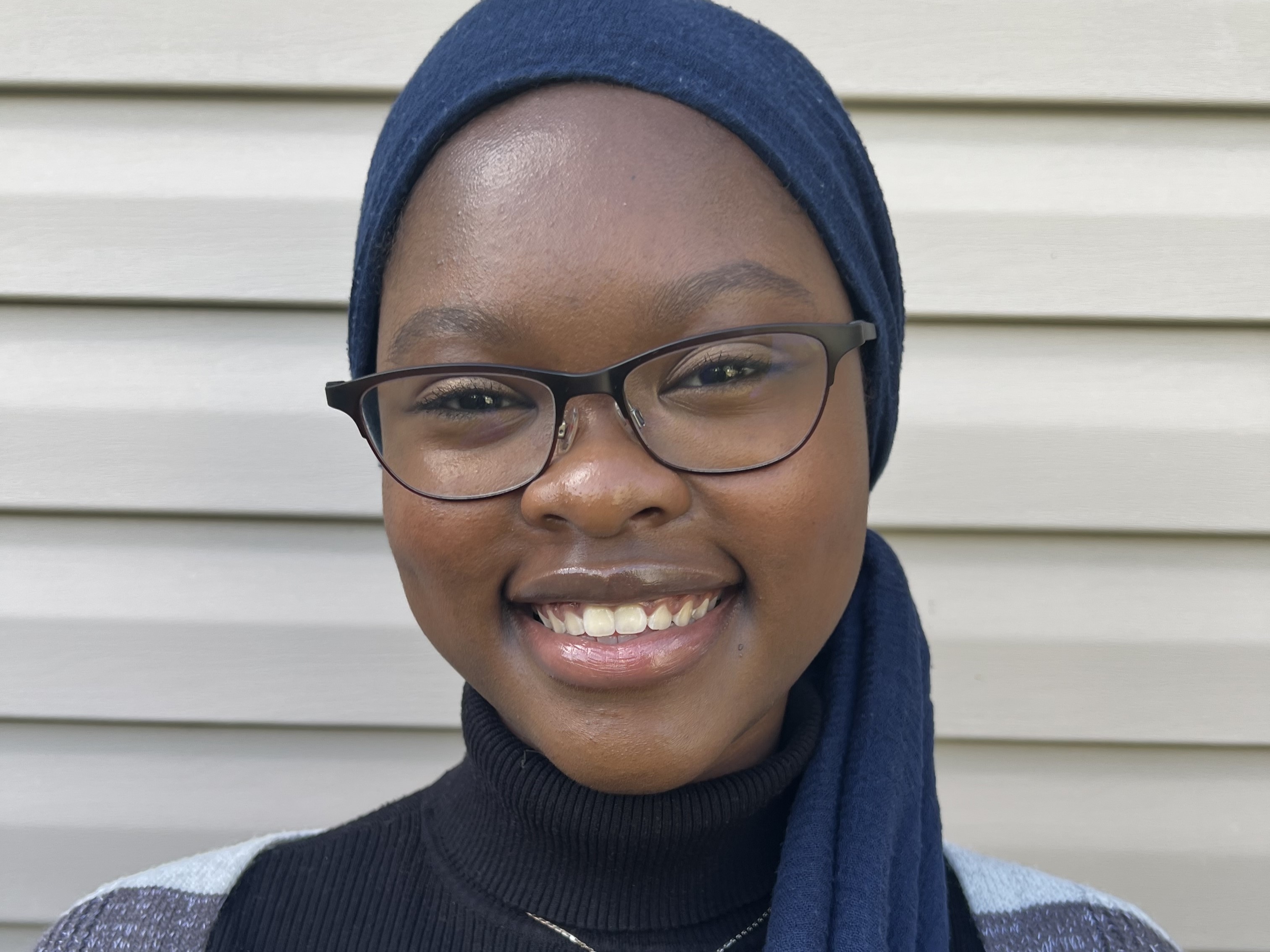2024 FIRE STARTER >> Louhan Dembele

Q. What are the research areas you are currently exploring? How did you connect with this research topic?
My research project is entitled “Understanding Black women’s experiences with endometriosis diagnosis and treatment in Southwest Virginia.” As I was brainstorming topics earlier this semester, my mind kept going toward reproductive health research, and I landed on endometriosis due to my family history with the disease. I also knew I wanted to focus on Black women specifically, and after reviewing some literature and talking with my faculty mentor, Dr. Cori Ruktanonchai, I realized that this project could provide some foundational information for understanding endometriosis and its psychosocial impact on Black women.
Q. What drew you to become involved with the F.I.R.E. Starters program?
I took a class called Sociology of Race and Ethnicity with Dr. Jeff Stilley last spring, and I decided to conduct an honors project for the class. My project focused on understanding the historical and contemporary issues that have contributed to Black women’s mistreatment in the healthcare system. Dr. Stilley asked me if I wanted to present that project at the Sociology Student Symposium that March, and when I relayed how much I enjoyed working on my project and presenting, Dr. Stilley sent me information about the F.I.R.E Starters program. Furthermore, my public health academic advisor, Katie Cross, sent me similar information and encouraged me to apply.
Q. What has been some of the interactions that you have valued with your faculty mentor?
I distinctly remember my first meeting with Dr. Cori Ruktanonchai, who was my professor for Epidemiologic Concepts of Health and Disease. I originally went into that meeting with a topic (Black women and endometriosis), but I did not have a clear idea of where I wanted this research project to go. My main issue was that I was unsure of which research methods to use, which is why I asked Dr. Cori to be my mentor, as I remembered learning a lot about research methods during her class.
As that meeting went on, Dr. Cori and I continued bouncing ideas off of each other and eventually came up with this project. I felt so good afterward because I had solidified a topic and research question, discussed some of the limitations, and began reading more literature with study designs and topics that were related to mine. Dr. Cori has also been incredibly helpful with providing feedback on my abstract and poster for the Dennis Dean Undergraduate Research and Creative Scholarship Conference. Furthermore, she has assured me that this is a project that we can continue working on, even after the F.I.R.E Starters program is completed.
Q. Additionally, have there been some activities, interactions that you have found beneficial with your student peers?
One of my favorite meetings with my peers in the F.I.R.E Starters program occurred very recently. Each of us had the opportunity to practice presenting our posters and answering questions, and I found this to be incredibly beneficial and encouraging as we all supported each other and provided feedback to one another. I also really appreciated the faculty fellows taking us to Mellow Mushroom at the end of last semester, so that we could all have some time to relax and hang out off-campus.
Q. Will you be engaged in research this summer as a result of the program? If so, can you please share more?
I am currently involved in another research project called TEAM Malawi, so I will be traveling to Malawi at the beginning of summer break. Shortly after that, I am heading to Duke University to participate in a program called NextGenPop, so my research for F.I.R.E Starters will be put on hold until I get back. Luckily, I can work on my research proposal and background information throughout the rest of the summer, so that I can be best prepared to begin working on my project again this fall.




